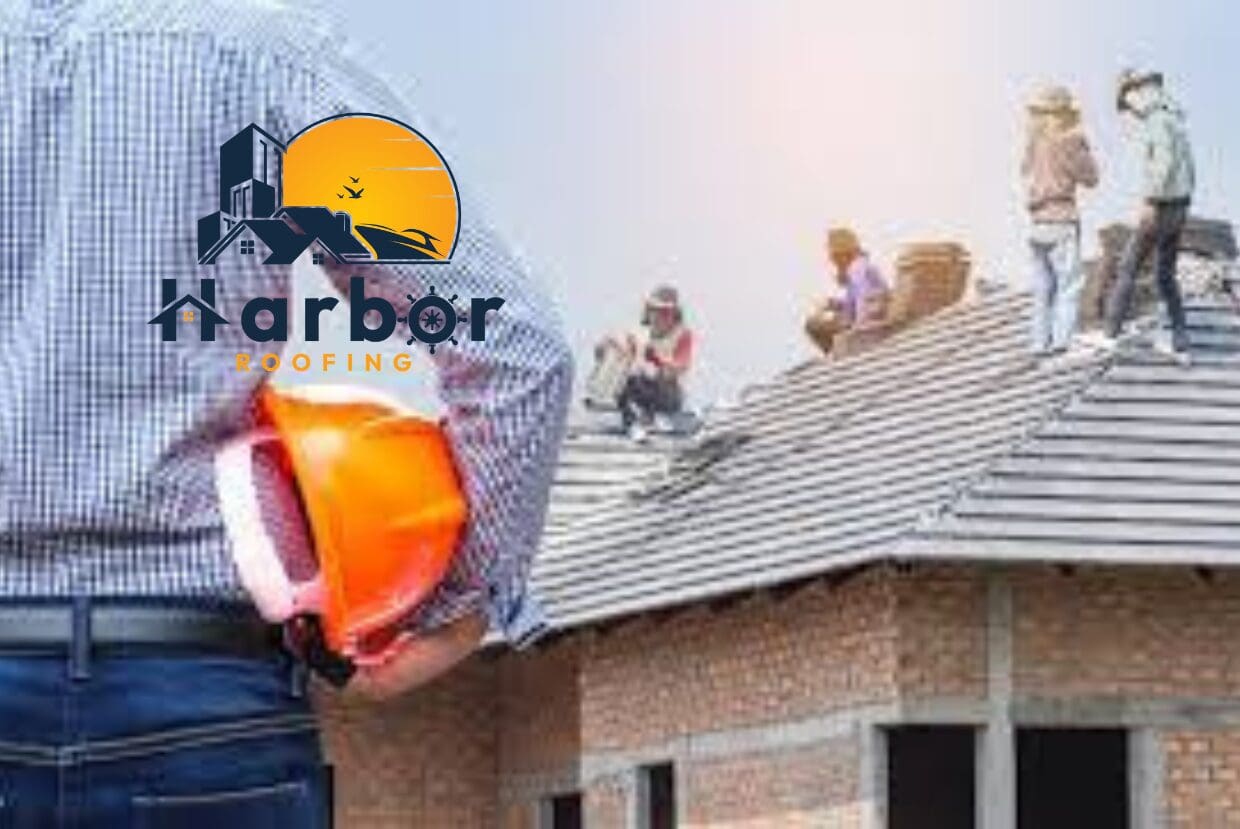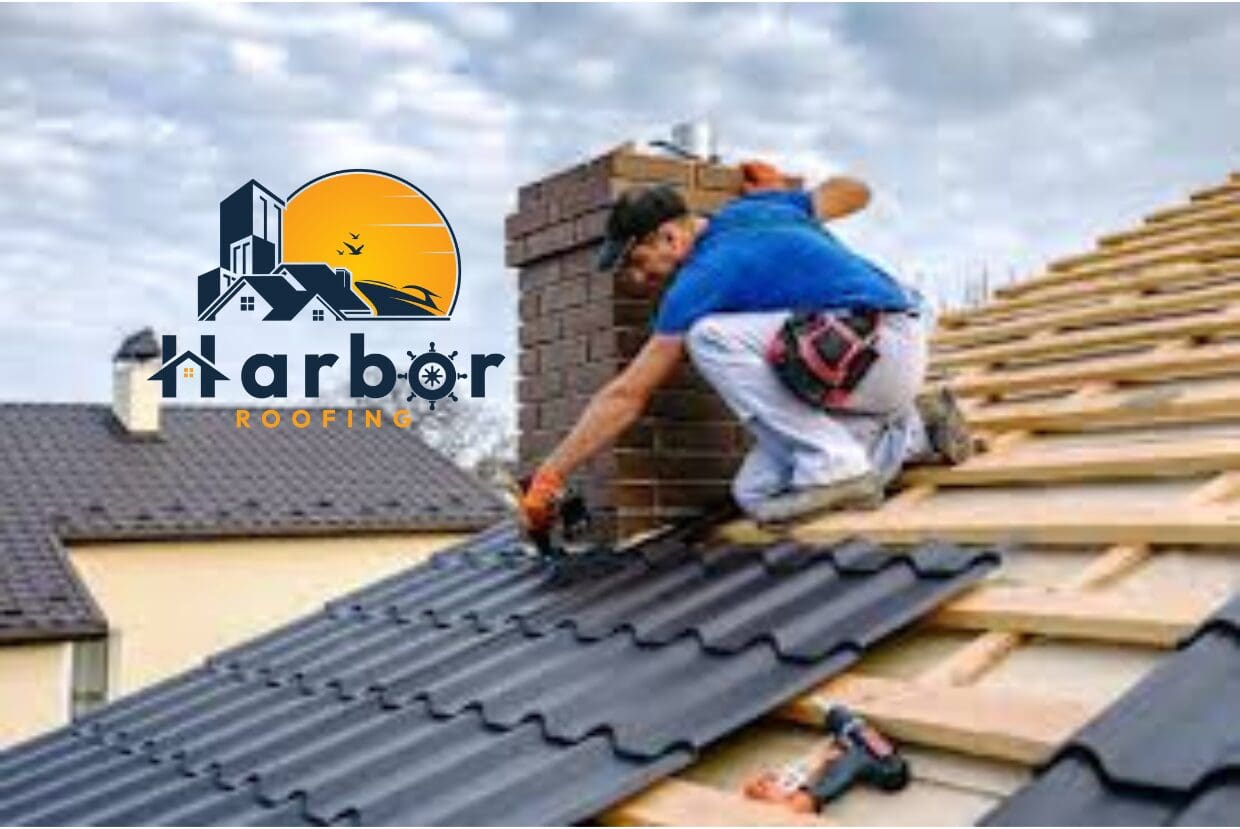Table of contents
Roofs are significant investments. Deciding on the types of roof shingles to use for your roofing project as a property owner can be a daunting exercise as there are quite a number of options to choose from. There are various types of roofing shingles, and each has peculiar qualities that make it stand out.
For the purpose of educating you and making your decision-making process easier, we will be talking about the different types of roofing shingles, their pros, cons, and differences. By the end of this article, you’ll have become a roofing shingle expert.
Types of Roofing Shingles
Asphalt Shingles
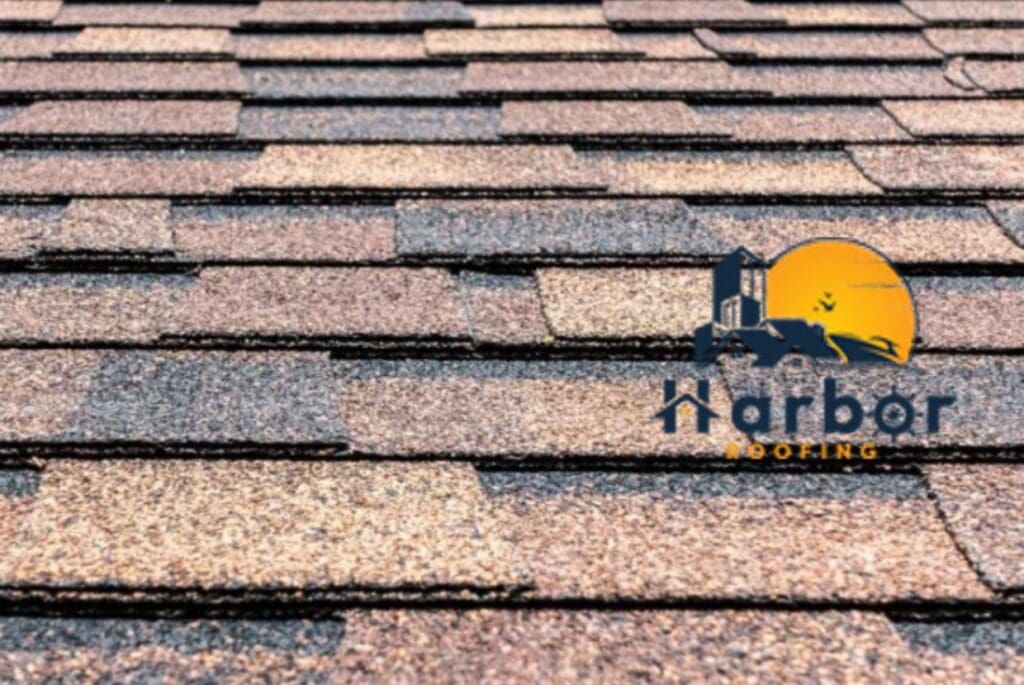
In the United States, homeowners frequently use asphalt shingles. It is, in fact, the most popular material for roofing. Although asphalt shingles exist in variants, they all have accessibility, easy installation, and affordability in common.
Asphalt shingles are low-maintenance and are available in a variety of colors and designs.
Pros
- Easy to install
- There are a variety of styles and colors to choose from
- It is an economical choice
- Long-lasting
Cons
- Not as long-lasting as other roofing options
- Low level of insulation
Metal Shingles
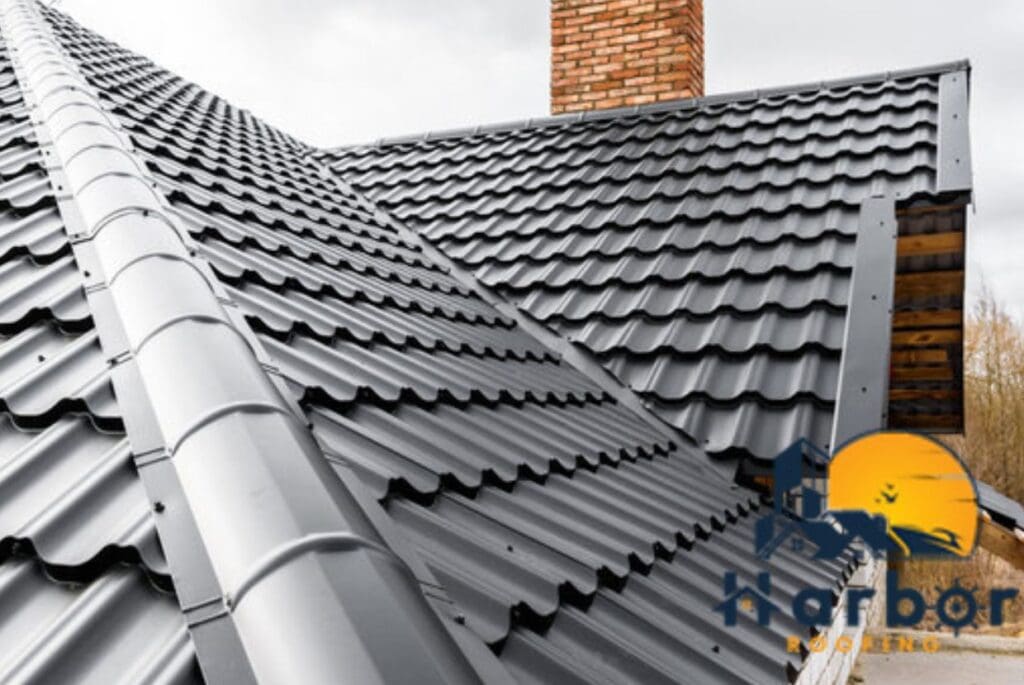
Metal shingle roofs are like the infamous coat of many colors, taking on the appearance of tile shingles, asphalt shingles, or wood shingles. As a homeowner, using a metal shingle gives you the best of both worlds. They are long-lasting and have aesthetic appeal. Additionally, this type of roofing shingle is lightweight and a great choice for most properties. These properties make them desirable not just to homeowners but to business owners as well.
There’s one thing, though: it will cost you a little more, but it would be worth the investment. Metal shingles will give you good value for your money, as they can last for about 40 to 80 years. Despite costing a little more, they are still less expensive than shingles like slate or clay tiles. Manufacturers can make metal shingles with different materials, including Aluminum, steel, copper, and zinc.
Pros
- It is long-lasting
- Appealing curb appeal
- It is lightweight
- It is fire-resistant
Cons
- Makes noise in stormy weather
- Costs more than asphalt shingles
Composite Shingles
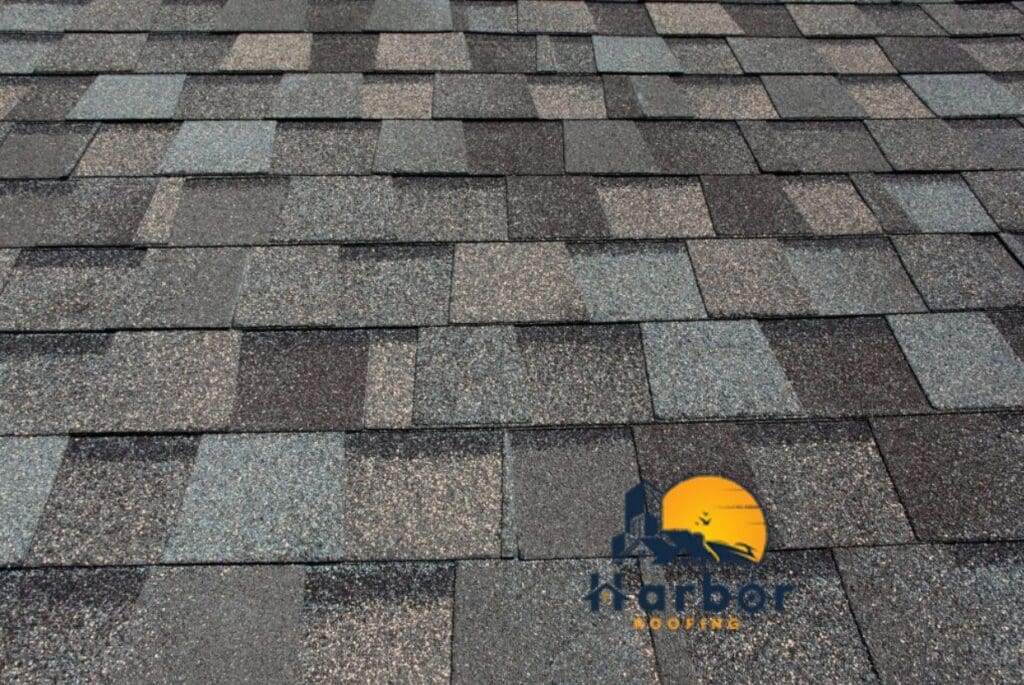
Composite (synthetic) shingles are the perfect choice for people who care about the ecosystem. Unlike asphalt shingles, which people hardly recycle and dump in landfills, composite shingles are recycled. Manufacturers produce this type of roofing shingle using recycled plastic and design them to look like a cedar shake or slate roof.
If you work in the roofing industry, you can tell the difference between synthetic shingles and the roofing material they mimic. Composite shingles have a lifespan of about 50 years.
Pros
- It is environmental-friendly
- It is durable
- Can mimic more expensive roofing materials
- It doesn’t get damaged easily
Cons
- Cost two times the price of 3-tab shingles
- It doesn’t last as long as slate and clay tiles, which it mimics
Solar Shingles
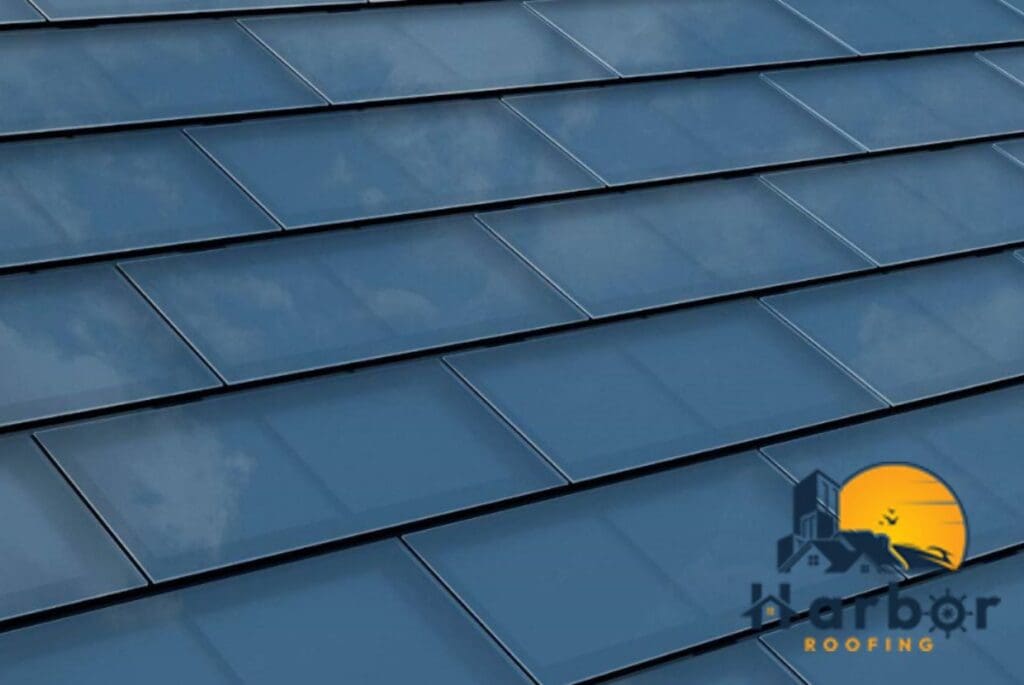
Solar (photovoltaic) shingles are a creative building material that combines the features of a traditional roof tile with the capacity to create electricity from solar energy. So solar shingles do more than protect your home. Unlike solar panels, solar shingles blend in with your roof and have a better visual appeal, making them a better choice. They are also eco-friendly and economical.
Using solar shingles helps you conserve money on utility costs because they generate electricity, which powers your home. Although the initial cost of installing solar shingles is expensive, many homeowners still choose it because the long-term reward is greater. You can also qualify for a federal renewable energy tax credit when you get one.
Pros
- Generation of renewable energy
- Increases property value
- Friendly to the environment
- Reduces energy bills
- It is durable
Cons
- It is expensive
- It can be a challenge to find a skilled contractor to install them
- Available styles and colors are limited
Wood Shingles
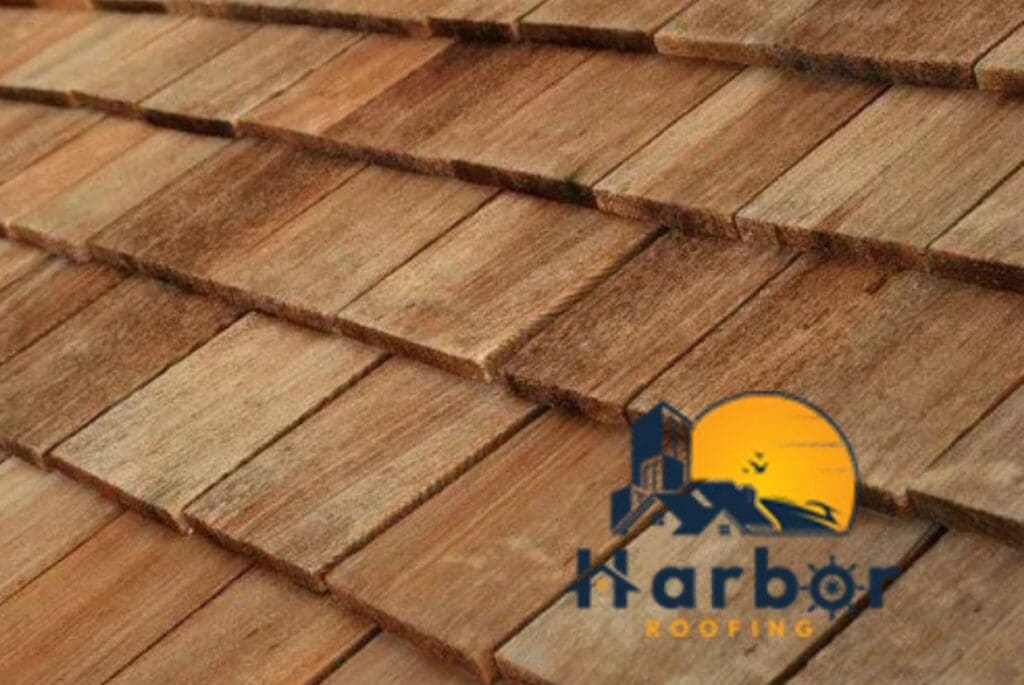
Wood shingles, usually referred to as cedar shakes by most people, are different from cedar shakes. This type of roofing shingle usually have a uniform and sleek appearance across the whole roof. Cedar shakes, on the other hand, have a rustic look that makes them unique.
Wood shingles are not resistant to fire. Hence, using them on buildings in areas prone to wildfires is not advisable. They are also high-maintenance shingles, as they need regular checkups. Without consistent maintenance, they will get rotten or grow mold.
Pros
- Outstanding appearance
- It is long-lasting and can last for as long as 30 years
Cons
- It needs a lot of maintenance
- Not resistant to fire
- Can grow molds and get rotten
- It costs more than asphalt shingles
Rubber Shingles
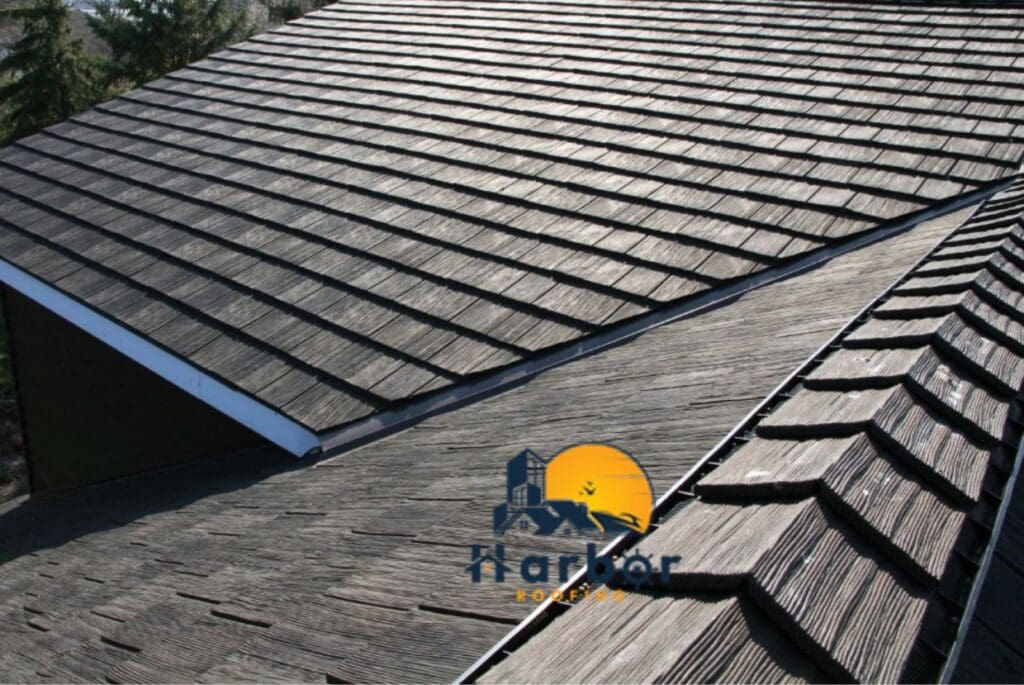
Manufacturers make rubber roofing shingles from recycled materials and synthetic polymers. It is uncommon to find rubber roofing shingles made with natural rubber that has never been used. The material used for this type of roofing shingle doesn’t bend or curl with time. Rubber shingles are also great insulators. Additionally, they are resistant to harsh weather, durable, and eco-friendly.
Pros
- It is easy to install and low-maintenance
- Affordable
- Ideal for commercial buildings
- Eco-friendly
Cons
- Low visual appeal
- Hardly lasts more than 25 years
- May have an unpleasant smell, especially during the installation
Clay Tiles
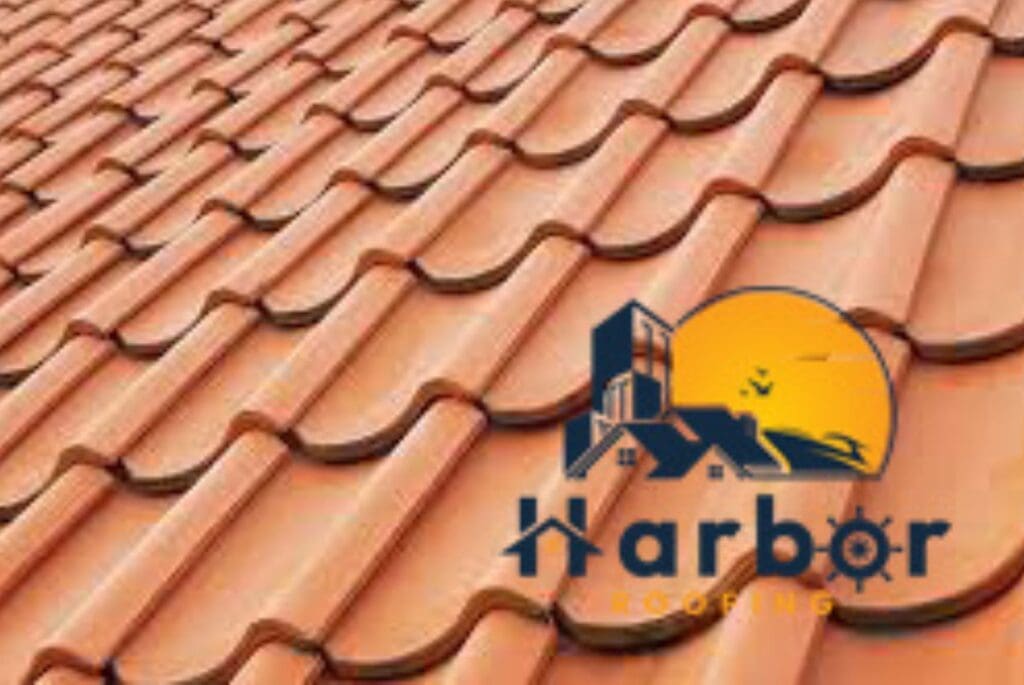
Clay roofing tiles are a traditional roofing material. They are made of clay and exist in slightly different colors, ranging from brown to white and even yellow. They are among the most long-lasting kinds of roof shingles. However, the density of the tiles varies according to the temperature and duration of heating.
This type of roofing shingle gives your building aesthetics that stand out from others. However, it comes at a cost. The cost of clay tiles is about three times that of asphalt shingles. Despite being expensive, they give you value for your money. They are low-maintenance, durable, and resistant to mold and rot.
Pros
- They are durable and can last over 100 years when well-maintained
- Eco-friendly
- Improves curb appeal
- Resistant to mold and rot
- Good insulator
Cons
- Brittle and prone to breaking easily
- It is heavy
- It is expensive
- Difficult to install
- Not suitable for some kinds of slopes
Concrete Tiles
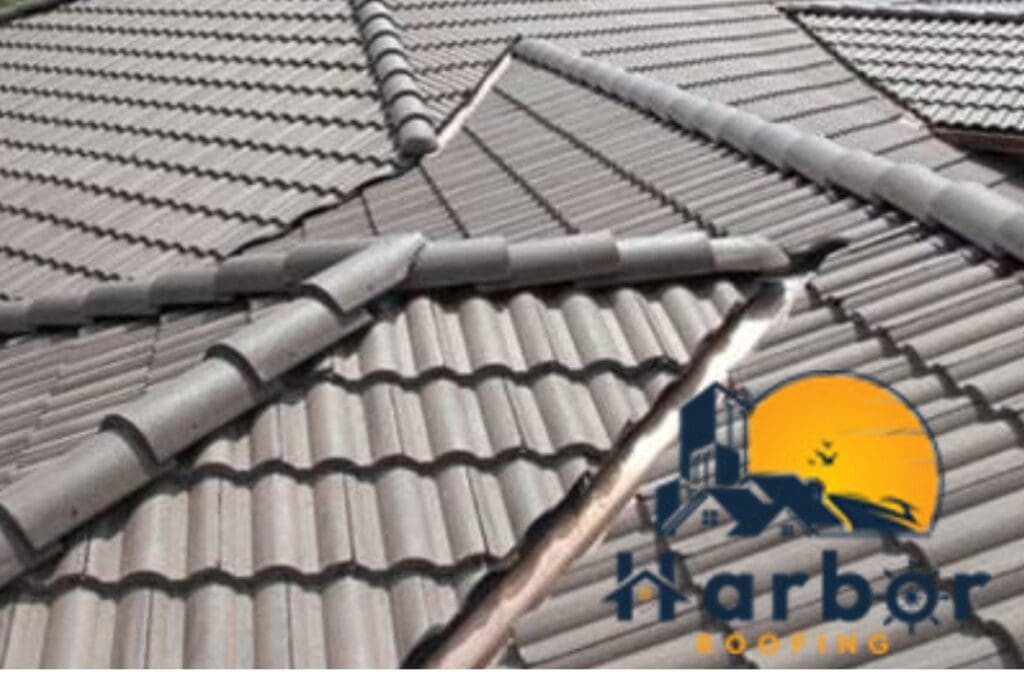
Concrete tiles are like a cheap substitute for clay tiles. Basically, with concrete tiles, you can mimic the aesthetics of clay tiles but at a less expensive price. They are budget-friendly and are available in different colors, shapes, sizes, and finishes. However, the traditional colors are usually earthy tones. They can last for as long as 50 years with minimal maintenance. Concrete tiles are also resistant to mold and rot and provide significant protection against fire.
Pros
- Cheaper than clay tiles
- Provide varieties to choose from
- Durable
- Low-maintenance
Cons
- It is heavy
- Color fades over time
- Not ideal for all kinds of roof slopes
Slate Tiles
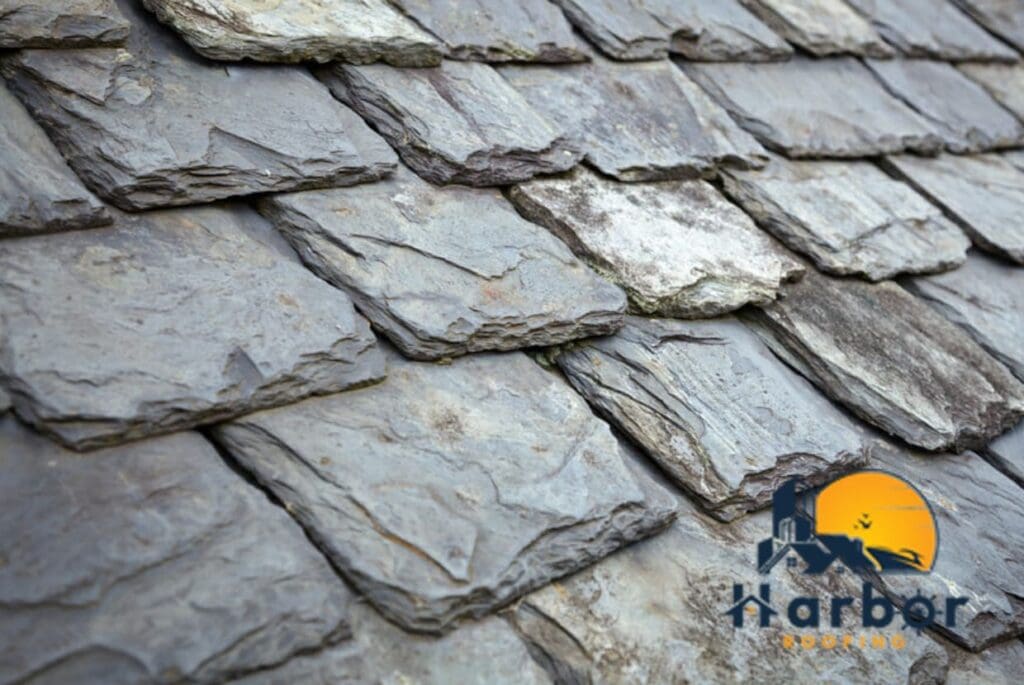
Slate tile is well-liked for its exquisite look. Because it is composed of metamorphic rock, the bonds between its layers may be weak. Although individual slate tiles may break easily, a slate roof can withstand 50 years before there’s a need for replacement.
Installing this type of roofing shingle can be challenging because the process requires expertise and a sturdy mortar surface. Despite being prone to splitting into layers due to their soft nature, they have a long lifespan.
Pros
- Aesthetically pleasing
- It is durable
- Eco-friendly and recyclable
- Resistant to fire
- It is resistant to insect infestation.
Cons
- About four times heavier than asphalt shingles
- A slate expert is the only one who can install it properly.
- It is brittle and tends to split
- It is challenging to walk on them, especially when wet
Conclusion
Various types of roofing shingles are available in natural, synthetic, and recycled materials, and their aesthetics range from rustic to sophisticated. Pick the one that best suits your climate and complements your property’s aesthetics.
Roof options, like solar shingles, can lower energy costs. We recommend wood or wood-look architectural shingles for rustic homes. Both clay and concrete tiles work well in Spanish-style houses. However, if you are a homeowner on a budget, we recommend using composite materials or three-tab asphalt shingles.
Frequently Asked Questions
What is the cheapest type of roof shingle?
Asphalt shingles are the cheapest roofing option. They are also affordable to install and are, in fact, one of the cheapest roofing materials to install. Metal roofing material is an inexpensive alternative.
What is the most common shingle roof?
Asphalt roof shingles are people’s most common roofing material for their homes. This roofing material has dominated the residential roofing market for many years and is designed to last long.
What is the most expensive type of roof shingle?
Slate is the most expensive type of roofing material. They cost about ten times more than asphalt shingles.
